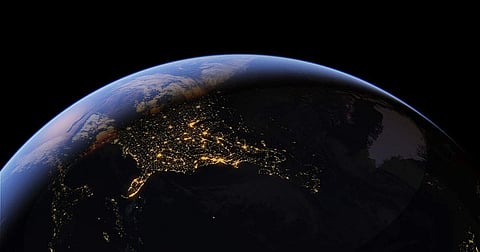

The Earth hosted life much earlier than thought, according to scientists who found that the planet may have developed its outer crust within 350 million years of the formation of the solar system.
Continental crust is richer in essential minerals than younger volcanic rock, which would have made it significantly friendlier to supporting life.
Counting strontium atoms in rocks from northern Canada, researchers from University of Chicago in the US found evidence that the Earth's continental crust could have formed hundreds of millions of years earlier than previously thought.
"Our evidence, which squares with emerging evidence including rocks in western Australia, suggests that the early Earth was capable of forming continental crust within 350 million years of the formation of the solar system," said Patrick Boehnke, the postdoctoral fellow at University of Chicago.
"This alters the classic view, that the crust was hot, dry and hellish for more than half a billion years after it formed," said Boehnke.
One of the open questions in geology is how and when some of the crust — originally all younger volcanic rock — changed into the continental crust we know and love, which is lighter and richer in silica.
This task is made harder because the evidence keeps getting melted and reformed over millions of years.
Some of these "younger" minerals (about 3.9 billion years old) are zircons - very hard, weather-resistant minerals somewhat similar to diamonds.
"Zircons are a geologist's favourite because these are the only record of the first three to four hundred million years of Earth. Diamonds aren't forever - zircons are," Boehnke said.
Plus, the zircons themselves can be dated.
"Having continental crust that early changes the picture of early Earth in a number of ways," said Davis.
